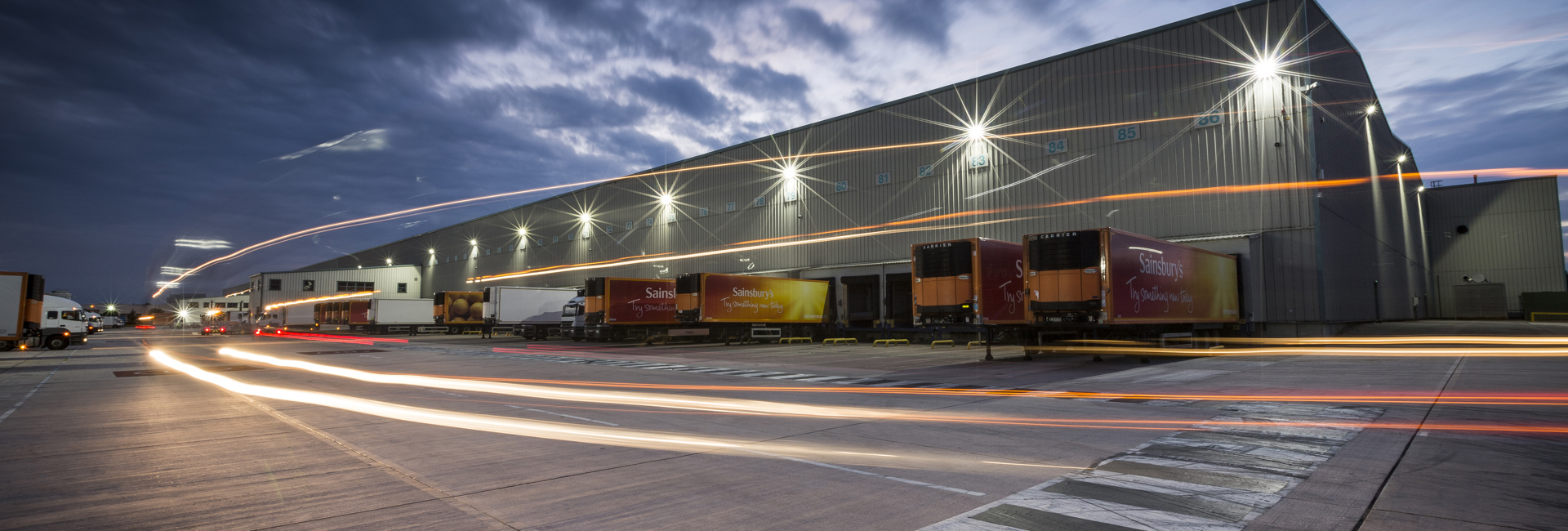2013 was a time before Brexit, Trump, Covid, deglobalisation and the war in Ukraine. For the IPO market, among the companies with headline-grabbing listings that year were Twitter, which raised $1.8bn (£1.4bn) on the New York Stock Exchange, and Royal Mail, which raised £2bn on the London Stock Exchange. On a slightly smaller scale, we raised £200m for investment in a resilient, income-generating portfolio. Distribution centres for UK household names such as Marks & Spencer, Sainsbury’s, Tesco, Next and Morrisons, promptly followed.
Seizing an opportunity
Ten years and some major macro-events later, IPO activity on the LSE is subdued – impacted by inflation, higher interest rates and a slowdown in the global economy. In the meantime, Tritax Big Box has grown from strength to strength. Just seven years after listing, we passed the milestone of £5bn assets under management. Today, we are placed at 110 in the FTSE. We have the UK’s largest portfolio of logistics investment assets and have paid out more than £850m in dividends to our shareholders, including retail investors, pension funds and large institutions – many of which have held our shares since the IPO.
In 2013, we could see the huge opportunity that existed to create a logistics real estate business benefiting from the critical role that logistics real estate would play in serving and shaping evolving supply chains. That conviction has never wavered.
In fact, supply chain evolution is happening ever faster after the knock-on effects of Covid, such as reshoring and increased e-commerce, technological advancements such as automation, and a drive to secure stronger ESG credentials. As we have grown, so has the range of high-quality customers with whom we are collaboratively delivering ESG-led asset management and development. Our conviction has underpinned innovation, including acquiring the UK’s largest land development platform in 2019, issuing the first sterling green bond by a REIT in 2020, and a recent move into smaller boxes in key urban and small-box locations to serve growing demand for e-commerce-driven last-mile logistics.
As we mark our 10-year anniversary, I’ve frequently been asked – is there a right time to IPO, and would you do it again?
Focus on income growth
In terms of timings, uncertain markets sometimes have hidden benefits since they can provide an attractive entry point to capitalise on mispricing, but in 2023 there have been very few IPOs. Bull or strong markets typically have more IPOs, but sentiment can quickly shift. More important are the long-term fundamentals – these are particularly important for REITs, which should be focused on delivering attractive income growth into the future – and high conviction. High conviction requires specialism, and we are great believers that focus and market expertise will outperform a generalist approach to investment.
In the early days, we perhaps underestimated the regulatory demands of going public. We’re not alone. A recent survey of FTSE-350 firms by the Chartered Governance Institute suggests additional reporting requirements are taking up a disproportionate amount of time – feeding into the argument that regulation disadvantages listed companies versus those in the private sector.
Yet the answer is still yes. On balance I would list again. Our IPO unlocked capital and accelerated growth, diversified our shareholder base, helped build our brand and attract great people. It has positioned us to look to the next 10 years and beyond with confidence, and I firmly believe that the growth of the logistics real estate sector in the UK is in its youth and the long-term opportunity remains very attractive indeed.



